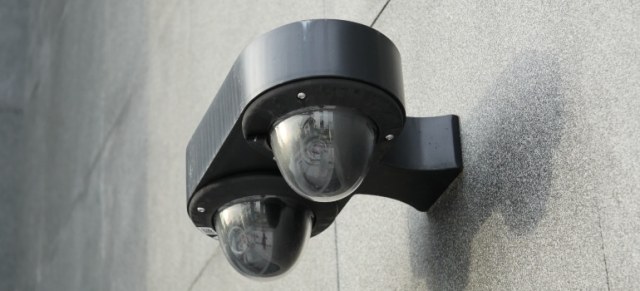Smart home insurance discounts – Are they worh it?
Smart homes are becoming more and more common. What was once in the realm of science fiction is today’s reality. Not only will smart homes improve your quality of life, but they also come with nifty insurance discounts. The reason why insurance companies are offering this discount is very simple: Smart homes are more secure than traditional homes. However, whether smart home insurance discounts are worth it or not is a matter of debate. In a nutshell, you will want to search for the best rated home warranty program that also offers discounts for smart homes. However, there is a lot more to know than that. That is why this article is going to explore everything there is to know about the interaction between smart homes and insurance discounts.
Smart home insurance discounts 101
Before we talk about insurance discounts, it is important to understand what qualifies as a smart home. A smart home is defined by its appliances and devices and their connectivity to one another, as well as their connectivity to the internet. These devices will provide data to the insurance companies, allowing them to fine-tune their risks and insurance premiums. Furthermore, by being connected to the internet, your hazard detectors (smoke detectors, water detectors, leak detectors, etc.) are capable of sending a warning to your phone, allowing you to react quickly.

Needless to say, the added security that these devices bring to the potential table may qualify them for insurance discounts. When it comes to smart home insurance discounts, there are four topics that are worth considering:
- Qualifying smart home devices
- Potential savings
- Popular Vendors
- Pros and cons of smart home insurance discounts
Check out the deals from the top rated home warranty companies today!
By understanding the above topics, you will acquire the knowledge necessary to make the best decision. Similar to how the most important things in homeowners insurance are its clauses and exclusions, there is a lot to consider when trying to figure out insurance discounts. That being said, let’s dive straight into the first topic.
Qualifying smart home devices
Not every device you install in your smart home will be “eligible” for smart home insurance discounts. For example, your Amazon Alexa might be a smart home device but it does not increase the security of your home. Therefore, it will not contribute to any discounts. The devices that do qualify for insurance discounts include:
- Smart fire alarm systems
- Smart smoke detectors
- Amazon Echo Dot
- Smart thermostats
- Gas/water shutoff sensors
- Smart security systems that include smart locks, video doorbells, and/or window/door sensors.
It is also worth noting that each insurance company offers unique discounts. In other words, there can be a world of difference between insurance companies when it comes to smart home insurance. Therefore, it is in your best interest to “shop around” and find the best deal before you renew your home warranty. To do so, you will need to know what the potential savings are.

Potential savings
As mentioned previously, your insurance savings will heavily depend on the insurance provider. That being said, most companies offer discounts that range from 5% to 20%. The actual number depends on the smart devices present within your home and their contribution to home safety. Basically, if a device lowers your likelihood of filing a claim, it will also lower your insurance premium. You can even have several separate discounts bundled together, provided that you have several types of smart home devices that each provide their own contribution.
Furthermore, some insurance companies will also offer lower installation and activation fees, as well as reduced costs for systems. Some of the largest insurance companies even offer free systems for smart homes. One of the greatest mistakes that home buyers make is that they mindlessly renew their home warranties without checking what sorts of deals are on offer. Since we don’t want you to make that mistake, the next topic will be all about the most popular vendors.
Popular Vendors
There are almost 6,000 insurance companies across the U.S. It is entirely possible that any one of them might be able to provide you with the best deal, though it is highly unlikely. More likely, you will be working with one of the following companies:
- State Farm
- Hippo
- Allstate
- Amica
- USAA
- American Family
Each of these companies offers great smart home insurance discounts, each in its own way. Let’s take a closer look at each one.
State Farm
If your home is located within Texas, Ohio, California, or Arizona, you can get a free Ting if you choose State Farm as your insurance provider. The insurance policy will not be discounted, but the company will pay for three years of service as well as any required hardware. Having Ting will provide you with excellent electrical hazard and power quality monitoring and will offer you a $1,000 hazard repair credit, provided that you are using a licensed electrician.

Hippo
Hippo insurance, alongside their partners Kangaroo and SimpliSafe, offers a 10% discount for self-monitoring smart home systems. The discount for professionally monitored smart home systems goes up to 13%. You might want to check with the company if your state qualifies, as not all states can get their insurance plans.
Allstate
Speaking of Allstate, they offer a somewhat small 5% discount for smart homes but they also provide a $20 discount for the membership with Canary HD security cameras, as they are partnered with Canary.
Amica
Amica offers unique discounts for Flo by Moen Smart Water Security Systems. These systems are extremely useful when it comes to protecting your home from water damage, as they can automatically shut off the water when a failure occurs. Furthermore, these systems offer the capability of shutting down the water remotely. The discount you can get does vary from one state to another, but it is usually around $450.
Check out the deals from the top rated home warranty companies today!
USAA
USAA, alongside their partner, ADT home security systems, offers a 15% discount on smart, self-installed systems. They also offer a 10% discount on monthly monitoring services, as well as a flat 10% off homeowners insurance premiums.
American Family
Another partnership, this time between American Family and Frontpoint Home Security Systems, offers the ability to install security cameras, locks, sensors, and control panels on your own, resulting in much lower installation fees. While this might not be a “true” discount, it might save you a lot of money in installation fees. If you are taking on home repairs that you can do yourself on a regular basis, this might be one of the best deals yet. However, if you can’t be bothered with installing the system on your own, you might want to look elsewhere.

Pros and cons of smart home insurance discounts
As with almost everything else in life, there are significant pros and cons of having smart technology in your home. Before you start thinking about discounts, you may want to figure out whether you want to create a smart home in the first place. To do so, you need to take a look at both sides of the coin, starting with:
Pros
The most important advantage that smart home security systems offer is added security. Not only will they improve deterrence, but they will also alert both you and the authorities as soon as an intrusion is detected.
Smart homes are also much more convenient than regular homes. The presence of automated systems that you can control through your smartphone adds an incredible convenience factor. Not only that, but smart homes are much more energy-efficient due to the fact that they are capable of changing the settings depending on the situation. Lastly, they can provide all sorts of information to the homeowner, resulting in better decisions and lower energy bills.
Cons
The primary downside of smart homes is the added cost. The fact of the matter is that smart technology can get rather expensive. Additionally, the fact that all your devices are connected to the internet makes them vulnerable to cybercrime. While it is not all too common, there’s a distinct possibility that hackers can access your smart home devices and get hold of your private information.
Smart homes also have a bit of a learning curve to them. If you are not particularly tech-savvy, you may have difficulties getting the most “mileage” out of your smart home devices. Lastly, smart home systems are much more vulnerable to power or internet outages than your regular devices. Some devices may have batteries for backup, but many do not. If the power or internet goes out, so does the functionality of your smart home devices.
Are smart home insurance discounts worth it?
This might be a simple “Yes or No” question, but the answer is a bit more complicated than that. If you are able to get significant savings due to these discounts, then yes, they are worth it. It all depends on what kind of deal you can get from your insurance provider. Most of the time, smart home insurance discounts are definitely worth it if you are planning on getting smart home devices in any case. But if you are considering making your home into a smart home just to get the most out of these discounts, then no, they are not worth it.
Check out the deals from the top rated home warranty companies today!
For more information on home security, best home security providers, as well as tips and tricks on how to make your home more secure, all you need to do is explore the rest of the Consumer Opinion Guide. Our knowledge database is there to provide you with all the answers!




